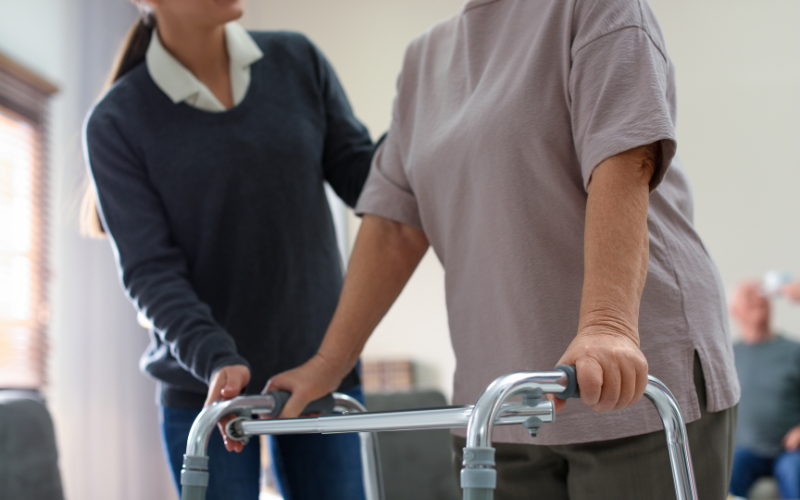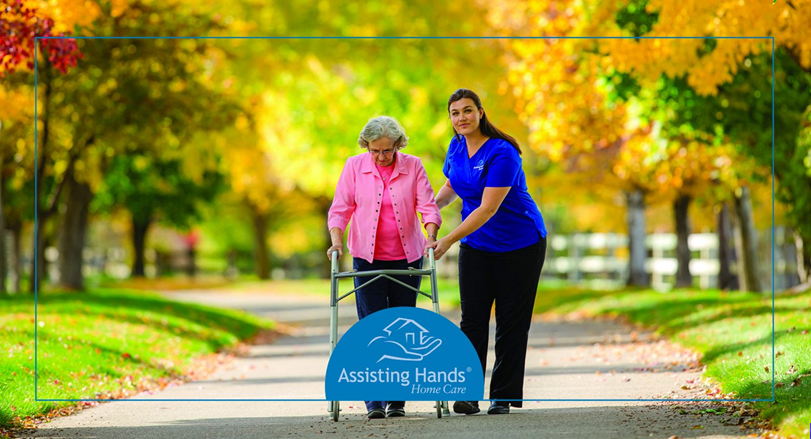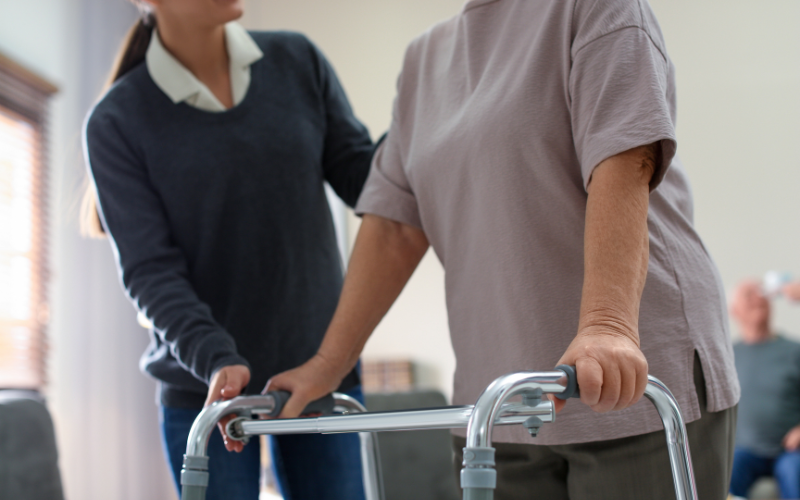
As people enter their golden years, they often discover that everyday tasks become more challenging. The health and mobility that once facilitated activities such as cooking and cleaning may diminish, complicating daily life. For some seniors, mobility issues are more severe, significantly restricting or altogether preventing their ability to walk.
At some point, many seniors will find themselves in need of daily assistance to ensure a safe and comfortable living environment. For elderly parents with limited mobility or those who are unable to walk, the need for comprehensive care becomes more pressing. Without adequate support, these individuals face a heightened risk of falls and related injuries, underscoring the importance of proper care and assistance.
Ensuring the safety and health of our elderly loved ones is a priority for everyone. It’s crucial that family and friends contribute to their well-being.
If you’re caring for an elderly family member with limited mobility or who is unable to walk, read on for valuable advice on how to offer them the support they need.
Understand Your Loved One’s Mobility Issues
Before you can help your loved ones with their mobility issues, you must first understand their specific limitations. You should ask your loved ones about their mobility issues, including how they impact their daily lives and what could be done to make their lives easier. Listen to their response to understand the limitation and pain they feel as well as what they can and cannot do. The severity of their condition and the specific ways it limits their daily lives will give you a better idea of how to help them.
1. Get a Mobility Aid
If your elderly parent cannot walk, a mobility device can help them get around their home. From crutches to canes, there are numerous mobility aids available for people to use if they cannot walk. Wheelchairs and scooters, however, are especially preferable for seniors in such a situation. Electric wheelchairs are recommended for those seniors who have limited core and upper body strength, because they will not need to manually push their chair or get someone’s help.
The following are the main mobility aids and who they can help:
- Canes: Canes can help seniors who have pain or a mild balance issue in one leg.
- Walkers: Walkers can help seniors with more moderate mobility issues as they provide more support and stability than canes.
- Wheelchairs: Wheelchairs help those with more severe limitations while allowing them to still be independent in their movements.
- Mobility scooters: Scooters and electric wheelchairs are ideal for seniors with severe limitations who also don’t have the core or upper body strength to move in a wheelchair.
These aids can be expensive, but Medicare can cover the cost in certain situations.
2. Make the Home Safer and More Accessible
A lot of elderly individuals do not want to leave their homes and move into a nursing home or an assisted living facility. Home is a place people work to earn and make their own, and they have a sense of comfort and familiarity there. Aging in place can also give them a sense of needed independence. So it makes sense for seniors to want to remain at home, but it is important that their residence is also safe to live in.
Knowing this, take time to help your elderly parent or relative by making their home safer and more accessible.
To start, focus on fall prevention by removing falling risks, such as loose cords and area rugs. Then add things that will help prevent falls and provide some stability. Add non-slip mats wherever necessary, and install handrails in the home. Rails can be especially helpful in bathrooms next to the toilet and in the tub/shower.
If your elderly loved one uses a wheelchair, add ramps to make it easier for them to get in and out of the home. Additionally, examine the way their home is arranged. If furniture is too close and cluttered, it can make using a wheelchair difficult. That said, you may need to rearrange and/or remove furniture from the home to ensure there are pathways and space for wheelchair use.
Ideally, the senior’s room should be on the first level so that they do not need to use the stairs. However, this might not always be plausible. In such a situation, consider installing a chairlift in the stairway so that your loved one can safely move between levels of their home.
The following are home modifications to consider that can help senior with mobility issues:
- Improved lighting
- Removal of tripping hazards like cords and rugs
- Handrails for staircases
- Grab bars in the bathroom and other areas where there is a high risk of falling
- Wheelchair ramps
- Non-slip mats
- Widen doorways and hallways to better accommodate wheelchairs and scooters
3. Encourage Exercise
All seniors need a certain level of exercise for their health and well-being and regular exercise can benefit seniors with mobility issues. The following are exercises that are safe for seniors with limited mobility:
- Stretching and flexing joints while sitting in a chair to reduce stiffness
- Training with light weights and resistance bands to maintain muscle mass
- Gentle torso twists to help maintain flexibility of the back
- Knee raises
- Water exercises with reduced resistance
4. Provide Them with Transportation
When seniors have limited mobility or cannot walk, they no longer have the freedom to drive wherever and whenever they want. This can prevent them from making doctor appointments, running important errands, and having a social life because they cannot go out to spend time with family and friends. As a result, seniors can experience loneliness and other mental health concerns, including depression.
While there is public transportation and other transportation services available, seniors with limited mobility may have a hard time using public transportation. Knowing this, give rides to your elderly parents and relatives when you can. If you cannot give them rides when needed, arrange for a friend, relative, neighbor, or home caregiver to provide transportation.
5. Hire Professional Senior Home Care Help
Supporting elderly loved ones during their times of need is a noble endeavor. Yet, the reality is that not all family members may be in a position to provide the necessary care for their senior relatives. To guarantee that your elderly parents or relatives, especially those who are mobility-impaired, receive essential care and assistance, consider enlisting the services of a professional caregiver.
A professional caregiver can ensure that your elderly loved one can stay in the comfort of their home while still receiving the comprehensive care they require. From personal grooming and meal preparation to running errands and providing transportation, home care services offer a variety of assistance options to simplify life for seniors living at home.
Senior Home Care Services from Assisting Hands Home Care

If your elderly loved one faces challenges with mobility, Assisting Hands is here to help. At Assisting Hands Home Care, we provide exceptional senior home care services in Naperville, IL, | Glen Ellyn, IL | Warrenville, IL | Westmont, IL | Woodridge, IL | Lisle, IL | Wheaton, IL and surrounding areas, enabling seniors to safely live in the comfort of their homes.
Our caregivers are seasoned professionals, rigorously trained and licensed to deliver top-notch home care services. From personal care to light housekeeping, meal preparation, and fall prevention, we cover a broad spectrum of needs. With this support, you can rest assured that your elderly family member is in the hands of a competent professional dedicated to their well-being. Call us at (630) 634-9316.















